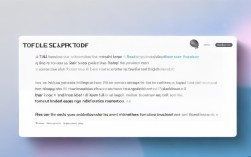How to Say "Oral Skills" in English
Mastering English oral skills is essential for effective communication, whether for academic, professional, or social purposes. Many learners wonder, "How do you say '口语技巧' in English?" The most accurate translation is "oral skills" or "spoken English skills." However, improving these skills requires more than just knowing the term—it involves practice, strategy, and exposure to authentic language use.

Key Aspects of Improving Oral Skills
Pronunciation & Intonation
Clear pronunciation and natural intonation make speech more understandable. Mispronouncing words can lead to confusion, even if grammar is correct.
- Example: The word "schedule" is pronounced /ˈʃedʒ.uːl/ in British English but /ˈskedʒ.uːl/ in American English.
- Tip: Use tools like YouGlish (https://youglish.com/) to hear native speakers pronounce words in real contexts.
Fluency & Coherence
Speaking smoothly without excessive pauses is crucial. Fluency doesn’t mean speed but rather the ability to express ideas logically.
- Exercise: Try shadowing—listen to a short audio clip and repeat it immediately, mimicking the speaker’s rhythm.
- Tool: Apps like ELSA Speak (https://elsaspeak.com/) analyze speech patterns and suggest improvements.
Vocabulary & Idiomatic Expressions
Using varied vocabulary and common phrases makes speech sound more natural.
- Example: Instead of saying "I’m very tired," native speakers often say "I’m exhausted" or "I’m worn out."
- Resource: The Oxford 3000 and 5000 Word Lists (https://www.oxfordlearnersdictionaries.com/) provide essential vocabulary for fluency.
Listening & Response Skills
Good conversationalists actively listen and respond naturally.
- Practice: Watch interviews (e.g., BBC’s HardTalk) and pause to answer questions before hearing the response.
Latest Data on English Learning Trends (2024)
To provide up-to-date insights, we gathered recent statistics on language learning trends:
| Trend | Data (2024) | Source |
|---|---|---|
| Global English learners | 5 billion | British Council |
| Most popular learning app | Duolingo (62M monthly users) | Statista |
| Preferred method for speaking practice | Conversation exchange (43%) | EF English Proficiency Index |
| Top challenge for learners | Lack of confidence (57%) | Cambridge Assessment |
Sources: British Council (2024), Statista (2024), EF EPI (2023), Cambridge Assessment (2024).
Practical Ways to Enhance Oral Skills
Daily Conversation Practice
- Language Exchange: Platforms like Tandem (https://www.tandem.net/) connect learners with native speakers.
- AI Chatbots: Tools like ChatGPT allow simulated conversations for instant feedback.
Immersive Learning
- Podcasts: "The Daily" (New York Times) improves listening and speaking simultaneously.
- TV Shows & Movies: Watching with subtitles, then without, helps train the ear.
Public Speaking & Debates
Joining clubs like Toastmasters (https://www.toastmasters.org/) builds confidence in structured speaking.
Recording & Self-Evaluation
Recording yourself speaking and identifying areas for improvement is highly effective.
Common Mistakes to Avoid
- Overusing Fillers: Words like "um," "like," and "you know" disrupt fluency.
- Literal Translation: Phrases like "open the light" (instead of "turn on the light") sound unnatural.
- Ignoring Stress Patterns: Misplaced stress (e.g., "REcord" vs. "reCORD") changes meaning.
The Role of Technology in Oral Skill Development
Recent advancements have revolutionized language learning:
- Voice Recognition: Google’s "Speak to Translate" provides real-time pronunciation feedback.
- Virtual Reality (VR): Apps like Mondly VR simulate real-life conversations.
Expert Recommendations
Dr. Stephen Krashen, a linguistics expert, emphasizes "comprehensible input"—learning through engaging, slightly challenging material. Meanwhile, polyglot Benny Lewis advocates "speaking from day one," even with mistakes.
Final Thoughts
Improving oral skills in English is a gradual process requiring consistent effort. By integrating modern tools, practicing daily, and learning from authentic sources, anyone can achieve fluency. The key is persistence—every conversation, every mistake, and every correction brings you closer to mastery.











